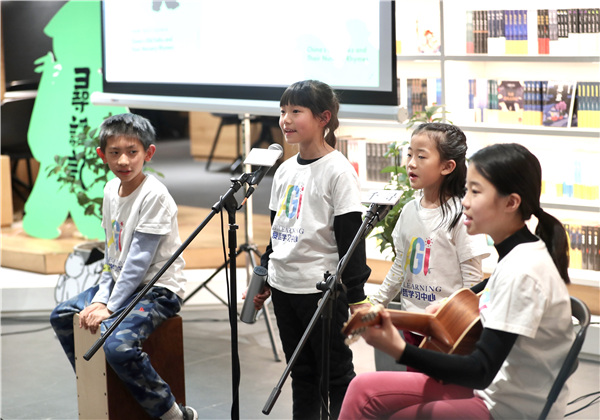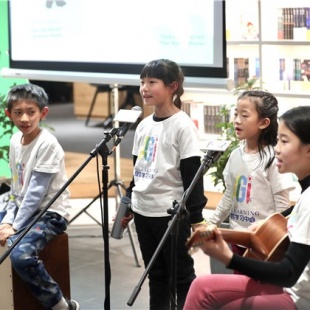Children's songs are a melody of success


In 2018, singer-songwriter Xiaohe, whose real name is He Guofeng, walked around a hutong area in the capital. There he met an elderly man, surnamed He. The man was humming a song and Xiaohe was intrigued by the melody. The song is about Lugou Bridge, a famous place near the Wanping Fortress in Beijing's Fengtai district, often referred to as the Marco Polo Bridge.
The song depicts the scenes of the camels traveling on the bridge which is adorned with lion figurines. The song hit Xiaohe immediately. Though it is simple and short, the singer-songwriter decided to adapt it into a new song and allow more people listen to it.
The song became the first work of Xiaohe's project, titled Nursery Rhyme Program, which aims to preserve old Chinese children's songs.
During the past two years, more and more singer-songwriters joined in and traveled along with Xiaohe across the country to collect children's songs. About 50 songs have been adapted into new works.
Besides singer-songwriters, writer Wang Shuo also joined in the project and the experience has inspired Wang to release a new book, titled China's Old Folks and Their Nursery Rhymes, which was published recently.
The book combines pictures and words by Wang. The writer also created a map of Beijing for people who are interested in listening to the old children's songs, which covers hutong areas of Beijing, such as Ditan, Tiantan and Yuyuantan.
"The idea of publishing a book revolving around children's songs started two years ago when I joined Xiaohe to listen and collect those old children's songs performed by the older generations," says Wang in a bookstore in Beijing on Nov 25."I was touched by these songs because they have been passed down by generations and are part of history."
"We want to create a bridge between the older and younger generations. Music is a great bridge," Wang adds.
"Those old songs are full of memories for the elderly people we interviewed," says Xiaohe, 45, the former lead vocalist of Chinese rock band Glamorous Pharmacy. He has also written music for theatrical productions and movies. In 2016, Xiaohe joined in a music program for children with special needs and was inspired to search for more songs.
To collect songs, Xiaohe says that he wakes up early in the morning and goes to local parks to meet elderly people, who are doing their morning exercises. He also carries his ruan (a traditional Chinese plucked stringed instrument) and invites the people in the park to play music with him. The process of building up trust could be very challenging in the beginning, he adds.
"It's not only about reminding people of their childhood memories but also about recording memories and sharing the histories of different generations via music," Xiaohe says. He adds that Wang's book not only captures the stories portrayed through the songs but also develops into a platform for people, who want to have a taste from the past years.
In early 2020, Xiaohe invited his musician friends to launch an online concert introducing old children's songs. Veteran singer Laolang, whose real name is Wang Yang, joined in the online concert and performed a song, titled We Are One Year Older.





































